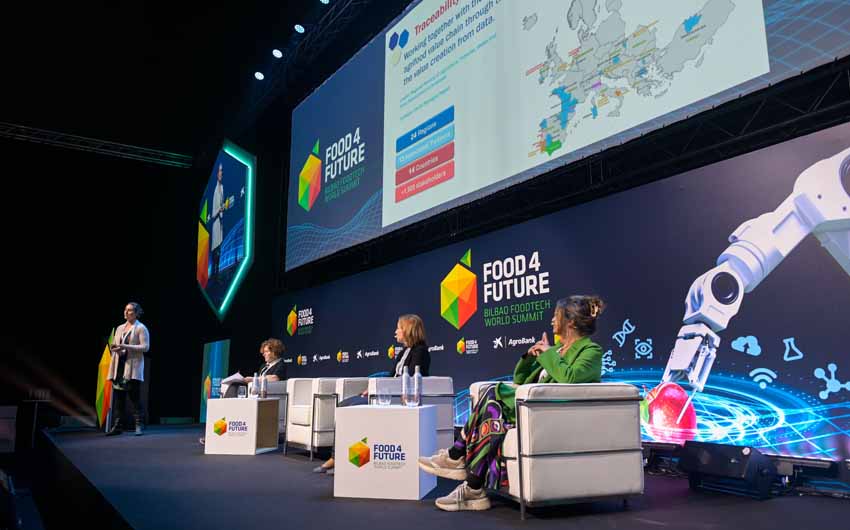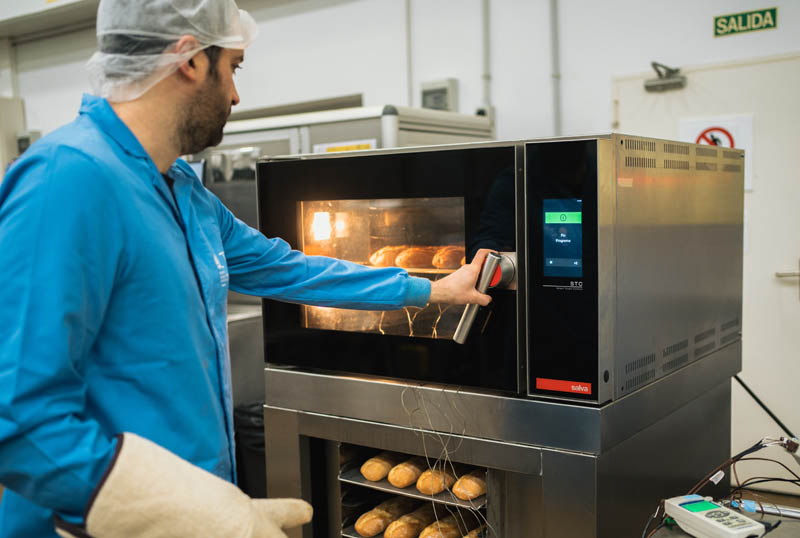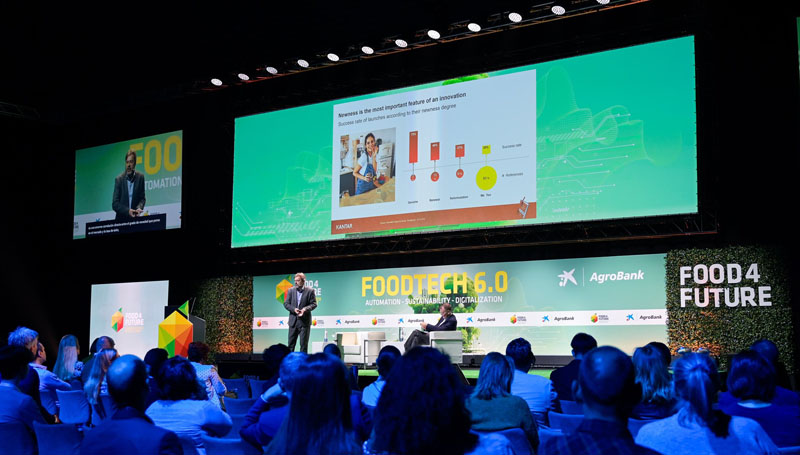F4F – Expo FoodTech marks precision farming, artificial intelligence and diet personalisation as top trends in FoodTech
Últimas noticias
AZTI Researcher Ángel Borja Receives Prestigious Odum Award for International Scientific Career
Una mirada LGTBIQ+ al reino animal
Circular Economy in Action: Valorisation of By-products through Projects like PRIMA NEWFEED
Bilbao, 25 May 2023. F4F – Expo FoodTech, an event organised by the company NEBEXT and the AZTI technology centre, has established itself as the largest European forum and one of the largest in the world on innovation and future trends for the food and beverage industry. With 8,372 congress participants and professionals from more than 34 different countries, this essential FoodTech event has become for the third consecutive year the place to find the knowledge, solutions and technologies to innovate and advance in the transformation of the agri-food value chain.
For three days, 413 international speakers analysed the areas where innovation plays a crucial role. According to the experts, while price continues to be a critical factor in food purchasing decisions (even more so in a context marked by the global rise in the cost of resources), they also highlighted trends that reflect the growing demand for healthier, more sustainable, personalised and convenient food.
In response to these demands, F4F – Expo Food Tech once again highlights the essential role of technology in improving production, distribution and consumer experience. Among the main technologies that are playing a crucial role in the food sector, the following stand out:
- Blockchain and traceability: blockchain technology to improve transparency and traceability in the food supply chain is making it increasingly easy to trace the origin and quality of products.
- Internet of Things (IoT): the application of sensors and IoT devices in production and storage facilitates real-time monitoring of crop conditions and food preservation.
- Artificial intelligence and automation: these will be increasingly used in the food supply chain to, among other applications, optimise logistics, predict demand, or improve operational efficiency.
- Technification of the primary sector: F4F – Expo FoodTech has shown the potential of agri-food technology to respond to major economic, environmental and social challenges, including feeding a growing population and addressing and minimising the impact of climate change on food production in the primary sector. Vertical farming or precision agriculture will expand to maximise food production in limited spaces and reduce the use of pesticides and water. Artificial intelligence-based fishing will continue to grow to reduce costs, reduce greenhouse gases and ensure the quality and traceability of fish products.

The main areas where technological innovation is playing a crucial role include:
- Alternative foods: the development of alternative and biotechnology-based foods and ingredients will continue to increase, trying to solve the challenges faced in terms of sensoriality, production, etc.
- Personalised nutrition: The trend towards more personalised nutrition will intensify. Advances in areas such as the microbiome or genomics, and technologies such as artificial intelligence will allow increasingly individualised dietary recommendations to be offered, and will drive the design of functional foods.
- Ecommerce and advanced logistics: e-commerce in food will continue to grow. The challenge is to improve the shopping experience and to optimise and make delivery services more sustainable.
- Consumer experience: the drive to improve the consumer experience will continue, both in the physical shop and online, through data and technologies such as virtual and augmented reality, promoting more informed and personalised shopping.
- Sustainability: the need to create a sustainable food system, to reconnect with the origin of food and balance the relationship with nature, has been a cross-cutting vector in F4F – Expo FoodTech. The demand for sustainably produced food will continue to grow, which will increasingly drive the adoption of regenerative agricultural practices, new packaging and minimising food waste.
The Importance of new models of innovation and collaboration
F4F – Expo FoodTech has highlighted the growing importance of innovation hubs and ecosystems, a meeting point for research agents, startups and companies, where collaborative open innovation is promoted. Different innovation models are emerging, where the value of alliances and data exchange in the food value chain has been highlighted, to continue driving the necessary disruption to address the major challenges facing the sector.







